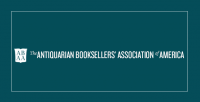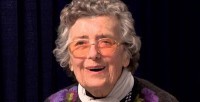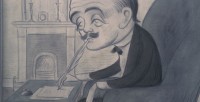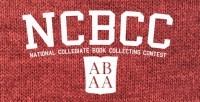Fall 2024 ABAA Diversity Initiative Discovery Program Program Overview The ABAA Diversity Initiative is proud to announce the first season of a guided program for individuals seeking to pursue a career in the antiquarian and rare book trade.. Designed to co-occur with annual ABAA book fairs, the program offers an introduction to antiquarian book fairs, career insight with ABAA members, visits to local ABAA member open shops/offices, networking with institution professionals, and more. This Fall Diversity Discovery Program offers stipends of up to $2,500 to two individuals to visit the Boston International Antiquarian Book Fair (November 8-10, 2024) during the week of the fair. Students will be guided by an ABAA member and with an itinerary of multiple networking activities. Program Date: November 6-10, 2024 Application Prerequisites � Self-identify as BIPOC (Black, Indigenous, and/or person of color) and/or LGBTQ+. � Minimum requirement of a high school diploma, OR currently enrolled student in any degree program (undergrads, Masters, PhD), OR recent graduate (< 1-year post-grad). � Applicants must be passionate about books, archival/library sciences, and/or bookselling. � Applicants must be able to travel and arrange their transportation and accommodation. Application: https://forms.gle/LCMMaS9Xqus2UG2P7 Application Deadline: August 16, 2024 *This application requires supplementary materials, so files will be uploaded to the form owner's Google Drive. Respondents must sign i... [more ABAA Diversity Initiative Discovery Program]
Et Cetera
The Booksellers Documentary producers Dan Wechsler (Sanctuary Books), D.W. Young, and Judith Mizrachy recently premiered UNCROPPED, which rediscovers the work of James Hamilton, one of the great photographers of the cultural history of America. For over four decades working on staff at publications such as Harper's Bazaar, The New York Observer, and most notably, The Village Voice, Hamilton captured remarkable people and stories of the last half-century. Hamilton chronicled the punk and jazz music scene in 1970s and 80s New York City, creating iconic images of musicians like Charles Mingus, Patti Smith, and Lou Reed and taking intimate portraits of everyone from Akira Kurosawa and Jean-Luc Godard. He eventually broke off to do set photography for George Romero, Noah Baumbach, and Wes Anderson. He pursued controversial assignments across the U.S. and the world, which, at times, reveal its seedy underbelly. He never stopped amassing a stunning visual love letter to New York City in all its grit and glory. Hamilton's story and vast archive offer a singular window into the heyday of alternative print media. Taking its name from Hamiton's assertions that publications never cropped his images, Uncropped's filmmakers detail Hamilton's process and his uncanny ability to know the precise moment to unfold a vignette in just two colors. Among the most poignant works are his sympathetic photos of drug-addicted sex workers in pre-gentrified Williamsburg, a young Patti Smith with Tom Verl... [more Booksellers Documentary Producers Premiere UNCROPPED]
May 1 marks the hundredth birthday of Agnes Dawson, a mainstay of the Southern California book trade for over seventy-five years. Agnes' career in the book world began when she met Muir Dawson in 1947. When they met, Muir and his elder brother, Glen, had recently taken over the management of Dawson's Book Shop from their father, Ernest, who had founded the business in 1905. Agnes married Muir in 1948 and became immersed in the book trade: in a profile of Agnes in Zamorano Celebrates 90 (2018), Elizabeth Pomeroy explains that Agnes, Muir, Glen, and other Dawson's staff traveled to Venice, to England, to Japan for the ILAB Congress, and to book fairs all over the world. By the late 1950s, Agnes was running the finances of Dawson's, a role she maintained for nearly fifty years. She was more than the bookkeeper, however. According to her son, Michael Dawson, Agnes was “an unsung hero” of Dawson's. “She understood the business, and she knew the clients,” Michael said, adding that Agnes was the “financial glue in the company.” It was Agnes who made, in Michael's words, “possibly the single most important” business decision in Dawson's history: she advised Glen and Muir Dawson to relocate the shop to the Larchmont neighborhood in 1968 after the closing of the downtown “booksellers' row” location. At the time, Glen and Muir wanted to stay close to downtown Los Angeles. Much of the area they were looking for a new location never took off for retail business. Larchm... [more Agnes Dawson Turns 100]
The Raab Collection is looking for a Medieval Manuscript Specialist. See below the job description. Medieval Manuscript Specialist at The Raab Collection Rare opportunity to help build and develop a medieval manuscript department from the ground up, joining an established firm in the historical document field, The Raab Collection. Main Responsibilities – Acquire and catalog inventory, following dealer and auction sites – Liaise and be a point of contact for buyers and sellers – Write blog posts and other pieces that aid promotion – Maintain relevant sections of the website using WordPress content management system (no coding required) – Support public relations efforts Requirements: – Self-starter, multi-tasker, well-organized – Existing network of contacts within the collecting community – Background in Medieval art history or paleography, particularly English - Minimum 3 years industry experience - Salary commensurate with experience. Full-time position Starting date: ASAP Location: this is a remote position; no location requirement. Occasional visits to Philadelphia. Interested applicants should contact nathan@raabcollection.com, attaching their resume. [more Job Opening: Medieval Manuscript Specialist at The Raab Collection]
Library of Congress Names Stephanie Stillo Chief of Rare Book and Special Collections
By Susan BenneThe Library of Congress named Stephanie Stillo the new chief of the Library's Rare Book and Special Collections Division. Stillo joined the Library in 2016 and previously served as the curator of the Lessing J. Rosenwald Collection and the Aramont Library — two of the division's notable collections. The Rare Book and Special Collections Division is North America's largest collection of rare books. Spanning eras and subjects, its holdings include nearly 1 million books, broadsides, pamphlets, theater playbills, title pages, prints, posters, photographs, and medieval and Renaissance manuscripts. President Thomas Jefferson's library is at the center of the collection, which was sold to Congress in 1815. As division chief, Stillo will lead the collection's development, stewardship, interpretation, promotion, and service to meet the needs of government officials, scholars and the public. During her time at the Library, Stillo has collaborated with division staff to launch several engagement initiatives — including the division's first crowdsourcing campaign and two large symposiums — as well as the Artists and Archives program, which manages an archivist every year to process archival arrearage relating to the contemporary book arts. She also oversees the division's popular video series “From the Vaults” and co-manages the division's blog, Bibliomania. “Over the past seven years as Curator of the Lessing J. Rosenwald Collection and the Aramont Library, I have had the p... [more Library of Congress Names Stephanie Stillo Chief of Rare Book and Special Collections]
Max Beerbohm: The Price of Celebrity The New York Public Library Stephen A. Schwarzman Building Sue and Edgar Wachenheim III Gallery Fifth Avenue at 42nd Street, New York, NY October 20, 2023–January 28, 2024 Today we live in a world of celebrity culture. Celebrity became an international industry in the late-nineteenth century, and the English artist and author Max Beerbohm (1872–1956) was at the center of it. From the 1890s through the 1920s, to be a celebrity meant the hope—and fear—of turning up in a drawing or a parody by “Max,” as he was known in both Britain and the U.S. His brilliant skewering of famous people in his visual caricatures and of their writing styles in his satirical works made him a celebrity himself. This was an identity he enjoyed, but later shrank from. In essays and fiction, he explored the price in human terms of achieving and maintaining celebrity status in ways that still resonate with us now. This exhibition maps the career of Sir Max Beerbohm (knighted in 1939) in relation to the idea of celebrity, following him from his early days in the Decadent circles of Oscar Wilde and Aubrey Beardsley through his late career as a radio performer on BBC broadcasts during World War II. Along the way, he knew, drew, and wrote about many other celebrities, from Henry James to Virginia Woolf and George Bernard Shaw to members of the Royal Family. The New York Public Library is the perfect place for this show. A wit and a dandy, renowned for always b... [more Max Beerbohm: The Price of Celebrity at the NYPL]
Job Posting: Donald A. Heald Rare Books is Hiring a Rare Book and Manuscript Cataloguer
By Susan BenneRare Book and Manuscript Cataloguer In our fifty years in business, Donald Heald Rare Books has established itself as one of the leading authorities on fine antiquarian books, manuscripts, prints, drawings and maps. From Donald Heald Rare Books' beginnings in London in the early 1970s, to our present location on the Upper East Side of Manhattan, we have honed our specialized knowledge of Americana and Canadiana, voyages and travels, illustrated books, prints, maps and atlases. We have also been fortunate to have contributed to some of the most important public collections worldwide and built some of the finest private collections. Our inventory is unrivalled in content and quality, our client service is of the very highest standard, and our genuine enthusiasm for our remarkable material is unmatched. Rare Book and Manuscript Cataloguer responsibilities: Cataloging of new acquisitions Researching histories of individual items and their creators, authors, artists, etc. Working with owner to craft accurate, engaging descriptions of new materials Organization and management of private library catalogues Inventory acquisition and sales Creating new catalogues and posting on our website and Internet bookselling sites. Professional and effective correspondence with fellow rare books professionals, prominent auction houses, and private clients from all over the world Physical, database and website maintenance of large inventory of books, maps, and prints Meeting with clients in perso... [more Job Posting: Donald A. Heald Rare Books is Hiring a Rare Book and Manuscript Cataloguer]
Associate Bookseller Position Based in the historic Union Building in Old Pasadena, Whitmore Rare Books has been serving a range of collectors for over a decade, placing rare book and manuscript materials at some of the most influential private collections and institutional libraries around the globe. In 2023, our shop seeks to recruit an Associate Bookseller to assist us in expanding our operations. This is a full-time salaried position based in our Pasadena shop that includes a set in-shop schedule with potential travel to and from book fairs. Salary is commensurate with experience and includes health insurance and paid time off (range $65,000 - $85,000). Interested parties should email a resume and cover letter to info@whitmorerarebooks.com. What the position entails: Research and Writing: • Cataloguing o Assisting with backlog and overflow cataloguing • Editing o Assisting with editing print and digital catalogues o Regularly checking on/editing/revising existing descriptions • Book Fairs o As needed, traveling to or from book fairs to assist in set-up and break-down o As needed, providing on-floor sales support at book fairs Front of shop support: • Shop Walk-ins o Welcoming walk-ins to the shop o Handling in-shop sales o Collecting client information • Phone Call and Email Support • Managing door for deliveries/outbound packages Marketing: • Social Media o Collaborating in developing on-brand content for social media channels o Scheduling and releasing soc... [more Associate Bookseller Position at Whitmore Rare Books in Pasadena, CA]
On the 100th anniversary of her birth, an exhibition, entitled GET HAPPY! celebrates the life and artistic contribution of actress, singer and cultural icon Judy Garland. Garland's expansive career hit nearly every popular genre of entertainment during her lifetime, including Vaudeville, blockbuster Hollywood films, sold-out concerts, best-selling records and a television variety show in her name. After 50 plus years since her passing, Garland continues to capture new fans and remains one of the most beloved cultural icons of all time. The exhibit will be situated on the 3rd Floor in the President's Tea Room. Most of the costumes and memorabilia have never been seen by the public, and they include highlights spanning from her most beloved role as Dorothy in The Wizard of Oz, to what many historians consider her pinnacle performance in A Star Is Born. This is a rare opportunity to see a true tribute to one of the greatest stars that ever lived. Woolsey Ackerman of ABAA member firm Walter Reuben, Inc. is assisting with the exhibiton. The last exhibit of this kind, which Woolsey also helped launch, was at the Lincoln Center Library, 30 years ago on the occasion of what would have been Garland's 70th birthday. The exhibit will be open to the public for a limited time at the Wilshire Ebell Theatre where Judy performed as a child on June 11 – June 12, 10am – 1pm. Contact Hailey Simmons (323-931-1277 ext. 159) for more information. [more Ebell Theatre in Los Angeles Hosts Judy Garland Exhibit in June]
The ABAA is now accepting entries for the 2022 National Collegiate Book Collecting Contest, where more than $6,000 in prizes will be awarded to student collectors. The National Collegiate Book Collecting Contest is open to all prizewinners of college book-collecting contests, whether or not first prize, as well as to interested students whose institutions do not offer formal contests or whose contests may have been canceled this year. (More information can be found here.) All entries should be submitted here... All entries for the 2022 competition must be submitted by June 15, 2022. For more information on the contest, please visit contest.abaa.org... The National Collegiate Book Collecting Contest is jointly administered by the Antiquarian Booksellers' Association of America (ABAA), the Fellowship of American Bibliophilic Societies (FABS), the Grolier Club, and the Center for the Book and the Rare Books and Special Collections Division of the Library of Congress. The Contest prizes are funded by noted collector and philanthropist Susan Tane. Meet the winners of the 2021 National Collegiate Book Collecting Contest… [more 2022 National Collegiate Book Collecting Contest]






